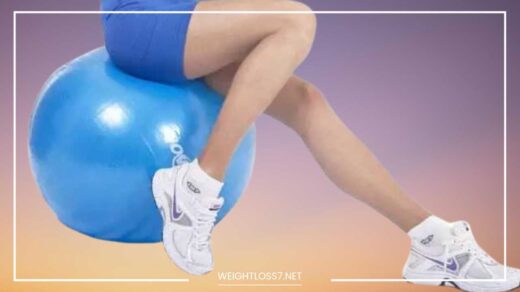What is a Liquid Diet

Liquid Diet
Sipping Your Way to Health? A Deep Dive into Liquid Diets
Liquid diets have been a topic of debate for decades, touted for weight loss, detoxification, and even managing certain medical conditions. But are they truly a healthy and sustainable approach? In this comprehensive guide, we’ll explore everything you need to know about liquid diets, from their various types and purposes to their potential benefits, drawbacks, and safe implementation strategies.
Understanding the Liquid Landscape
There’s more to liquid diets than just replacing solid food with drinks. Here’s a breakdown of the two main categories, along with some additional variations:
-
Clear Liquid Diet: Medically supervised, this short-term option (typically 1-2 days) consists solely of clear, easily digestible liquids. Think water, broth, clear juices (without pulp), and gelatin. It’s often recommended before or after certain medical procedures like colonoscopies or for digestive issues like vomiting or diarrhea.
-
Full Liquid Diet: Offering more variety than its clear counterpart, a full liquid diet incorporates liquids and foods that liquefy at room temperature. This includes strained cream soups, smoothies, milkshakes, yogurt (smooth, drinkable consistency), and even melted ice cream (minus any chunks). It might be used for a transitional period after a clear liquid diet or for individuals with chewing or swallowing difficulties due to illness, surgery, or dental work.
-
Brushing Up on Broth: While broth is a mainstay of both clear and full liquid diets, it’s important to choose wisely. Opt for low-sodium broths to avoid excessive sodium intake, especially for individuals with heart disease or high blood pressure. Consider homemade vegetable broth for added nutrients and customization.
-
Juice Cleanse Craze: Juice cleanses, a popularized form of liquid diet, involve consuming only fresh-pressed juices for a short period (usually 3-7 days). Proponents claim they offer detoxification and weight loss benefits. However, juices lack fiber and protein, leading to potential nutrient deficiencies, fatigue, and muscle loss. Additionally, the high sugar content in juices can cause blood sugar spikes and crashes.
Beyond Medical Uses: Exploring Liquid Diets for Weight Loss
Liquid diets have gained popularity as a quick way to shed pounds. The theory is simple: by consuming only liquids, you drastically reduce calorie intake, leading to initial weight loss.
There are various commercially available versions, including juice cleanses, pre-made meal replacement shakes, and even celebrity-endorsed liquid diet programs.
However, the weight loss benefits are often short-lived and unsustainable. Here’s why:
-
Nutrient Deficiencies: Liquid diets often lack essential nutrients like fiber, protein, and healthy fats. Fiber keeps you feeling full and aids digestion, while protein is crucial for muscle building and repair. Healthy fats provide satiety and support hormone production. Without these nutrients, you might experience fatigue, cravings, and muscle loss.
-
The Rebound Effect: Rapid weight loss from liquid diets is seldom sustainable. When you return to regular eating, regaining weight is likely, especially if you haven’t addressed underlying dietary habits or incorporated lifestyle changes for long-term weight management.
-
Yo-Yo Diet Dangers: Frequent cycles of liquid diets followed by weight regain can lead to yo-yo dieting, which can negatively impact metabolism and overall health.
A Balanced Look at the Benefits and Risks
While not a magic bullet for weight loss or long-term health, liquid diets do offer some potential benefits in specific situations:
- Rest for the Digestive System: Clear liquid diets can provide a period of rest for a troubled digestive system, allowing it to heal and recover after illness, surgery, or flare-ups of conditions like inflammatory bowel disease (IBD).
- Hydration Boost: Liquid diets ensure adequate fluid intake, crucial for overall health, digestion, nutrient absorption, and temperature regulation.
- Nutrient Delivery: Commercially prepared meal replacement shakes can be fortified with essential vitamins and minerals, addressing deficiencies in some individuals, particularly those with limited appetites or difficulty consuming solid foods due to medical conditions.
Important Considerations and Potential Risks
Before embarking on a liquid diet, it’s vital to understand the potential drawbacks and consult a healthcare professional:
-
Nutrient Deficiencies: As mentioned earlier, liquid diets often lack essential nutrients, leading to health problems like fatigue, weakness, hair loss, and impaired immune function if continued for extended periods.
-
Muscle Loss: Without protein intake from solid foods, muscle breakdown can occur, impacting metabolism and overall strength. This can lead to feelings of weakness and decreased ability to perform daily activities.
-
The Rebound Effect and Unsustainable Weight Loss: Rapid weight loss from liquid diets is often unsustainable due to the lack of dietary and lifestyle changes. When you return to regular eating, weight regain is likely, potentially exceeding the initial weight loss. This yo-yo dieting can disrupt metabolism and increase the risk of chronic health conditions in the long run.
-
Digestive Issues: Long-term dependence on liquids can disrupt the gut microbiome, the delicate balance of bacteria in your intestines. This can lead to digestive problems like constipation, bloating, and gas in the future.
-
Electrolyte Imbalance: Electrolytes are minerals like sodium, potassium, and magnesium that play a vital role in various bodily functions, including muscle and nerve function. Imbalanced electrolytes due to a lack of variety in a liquid diet can lead to fatigue, muscle cramps, and even heart rhythm disturbances.
Seeking Professional Guidance: When is a Liquid Diet Right for You?
Liquid diets are not a one-size-fits-all approach. Consulting a doctor or registered dietitian is crucial before starting any liquid diet, especially for:
- Individuals with underlying health conditions like diabetes, kidney disease, or heart disease. Liquid diets might not be suitable or require careful monitoring in these cases.
- Pregnant or breastfeeding women: Their nutritional needs are significantly higher, and liquid diets wouldn’t provide adequate nourishment for both mother and baby.
- People with a history of eating disorders: Liquid diets can trigger unhealthy eating patterns in individuals with a history of anorexia or bulimia.
A healthcare professional can assess your individual needs and recommend a safe and effective approach to weight loss, managing a medical condition, or addressing nutritional deficiencies. They can also help you develop a sustainable plan that incorporates healthy eating habits and regular exercise for long-term success.
Building a Sustainable Healthy Lifestyle: Beyond the Liquid Fix
Liquid diets might offer a temporary solution, but for long-term health and well-being, focus on building a sustainable and balanced lifestyle. Here are some tips to get you started:
- Incorporate whole, unprocessed foods into your diet for a wider range of nutrients, fiber, and healthy fats. Aim for a rainbow of fruits and vegetables, whole grains like brown rice or quinoa, and lean protein sources like fish, chicken, or beans.
- Plan your meals and snacks: This helps avoid unhealthy choices when hunger strikes.
- Practice mindful eating: Pay attention to hunger and fullness cues, and eat slowly to savor your food and avoid overeating.
- Don’t skip meals: Skipping meals can lead to overeating at the next meal. Aim for regular meals and healthy snacks throughout the day to keep your metabolism fueled.
- Stay hydrated: Drinking plenty of water throughout the day is crucial for overall health and digestion. Aim for eight glasses of water daily, adjusting based on your activity level and climate.
- Engage in regular physical activity: Exercise helps burn calories, build muscle mass, and improve overall health. Aim for at least 30 minutes of moderate-intensity exercise most days of the week.
The Bottom Line
Liquid diets can be a helpful tool in specific medical situations, but they’re not a sustainable solution for weight loss or overall health. By focusing on a balanced diet, mindful eating habits, and regular exercise, you can achieve lasting results and a healthier you.
Remember, consulting a healthcare professional is always recommended before starting any new diet plan. They can help you create a personalized approach that addresses your individual needs and sets you on the path to long-term success.

















